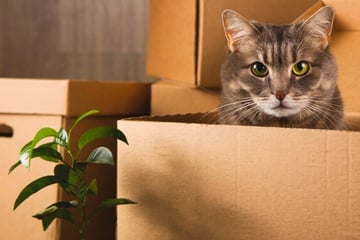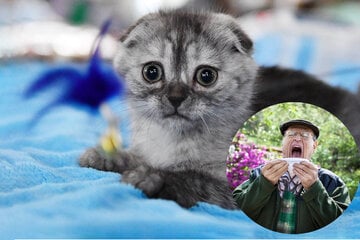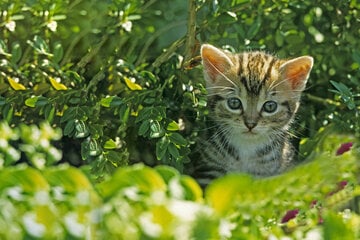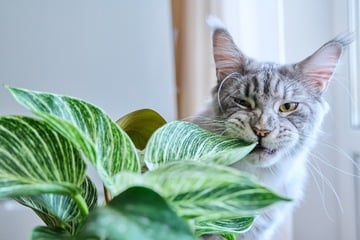What can cats eat? How to design the perfect cat diet
Cats are hungry fellows, and get rather grumpy when they've missed a meal. What's the safest way to fill their bellies, though? What can cats eat, and how can you design the perfect cat diet? Here's all the info!
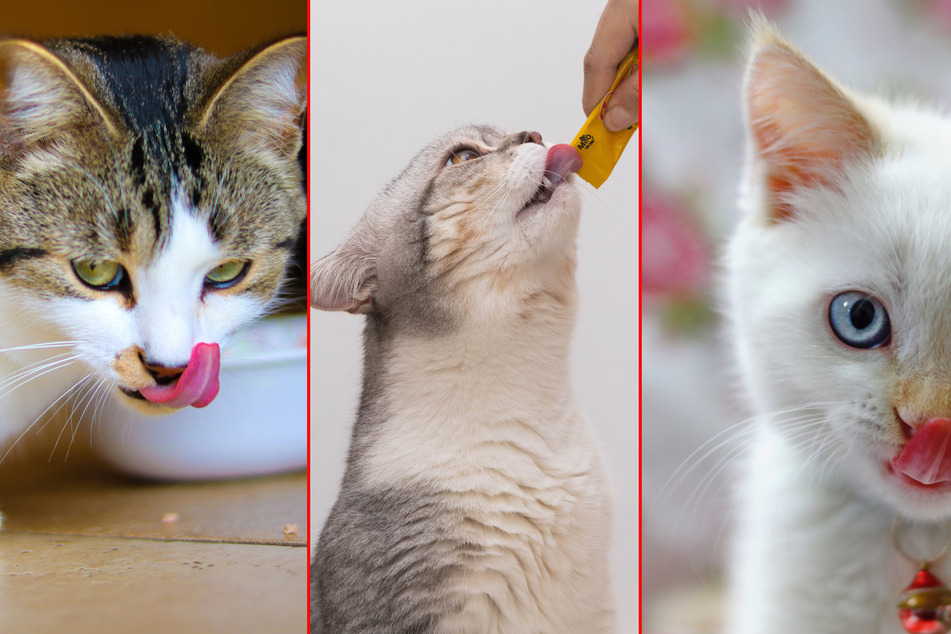
Is it okay for your beloved kitty to eat a bit of chicken off your plate, or should it be avoided to the fullest?
What about beef? Can cats eat any meat? Is raw meat?
Designing the perfect cat diet might seem complicated and overwhelming, but it's actually extraordinarily simple if you want to keep your cat as healthy as can be.
In this cat guide, TAG24 dives into the perfect cat diet. What can cats eat, what can we give them, and what balance should they get between cat-food and normal human food?
Let's find out what makes the purr-fect diet for your feline friend.
Why cat diets are so important
The diet of a cat is extremely important to keep their strength, their vitality, and their bodily functions healthy and consistent. The food that a cat eats plays more or less the same role in their body as it does in ours - the main difference, of course, is the food itself.
As carnivores, cats require a large amount of protein and fat, while their consumption of carbohydrates should be kept at a relative minimum. Commercial cat food is designed to meet all of these requirements and keep cats strong, healthy, and at an appropriate weight. If kept at an appropriate balance, a cat's diet should allow it to live long and happy.
What foods can cats eat?
Cats should always be fed primarily food that has been specifically designed for them - so that means both wet and dry cat food.
These products have been made to keep your cat strong and healthy, and will contain a balance of carbohydrates, fats, and proteins. You can talk with your vet about which brand is the best for your pet.
You should not give your cat food from the table, both for behavioral reasons and for physical health reasons. You don't want your cat sitting beside you every meal time asking for food, and you also don't want to make them sick or overweight.
As such, the only human food you should provide them with is in very small quantities, as a treat.
What meat can cats eat?
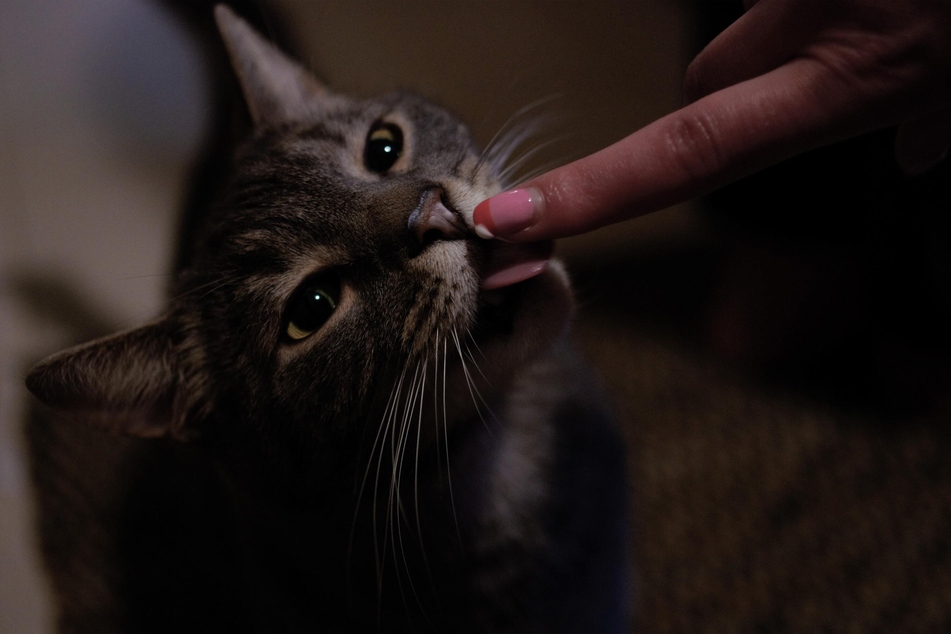
Cats should not be fed large quantities of straight-up meat, though there are a number of options that are fantastic as a treat.
Your cat will probably go crazy for roast turkey and, if it is Thanksgiving or in moderation, then it is okay to give it a little. This should be a one-off though, and under no circumstances should you be feeding your cat meat from the table on a daily basis.
Here are a few of the foods a cat can eat:
- Beef
- Chicken (boneless)
- Low-fat cured meats, with no spices
- Turkey
- Tuna
- Salmon
- Fully-cooked eggs
All meat that you provide to your cat must be cooked before feeding. They should not eat raw food, as this comes with potential health risks. On top of that, the meat should be cooked simply, with no oil or seasoning.
Important: Keep in mind that the above-listed foods are okay for cats to eat but are not nutritionally balanced enough to be part of their "diet." They should only be given to your cat as a treat, rarely, in small portions.
What human food can cats eat?
Cats can stomach, and will enjoy, a number of different human foods. Again, though, they should only be given these foods as a treat in very small quantities. In larger quantities and on a regular basis, these foods can cause health problems and will ultimately lead to issues for your kitty.
Here are some humans foods that cats can eat:
- Various cooked meats, if the seasoning is sparse
- Various cooked fish, if the seasoning is sparse
- Fully-cooked whole grains like oats, couscous, and polenta (in small portions)
- Fruit and berries such as bananas, pumpkins, and peeled apples
- Cheese (in small amounts)
- Certain vegetables are okay in small quantities, but check with your vet first
- Fully-cooked boiled eggs (de-shelled, of course)
Please remember that this is not an exhaustive list and, for more specific information on what is okay, you should talk to your veterinarian.
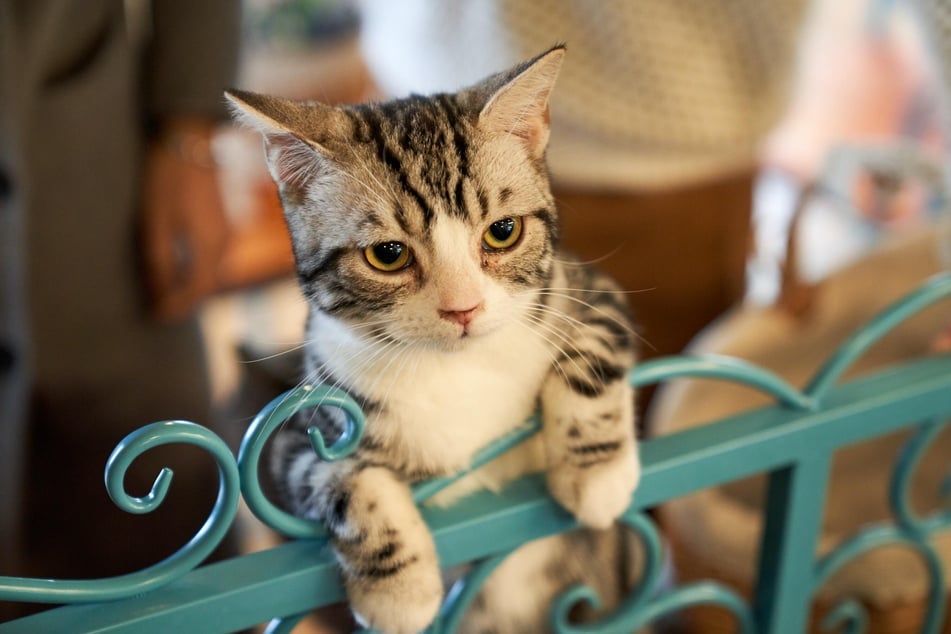
What can cats not eat?
It is extremely important to understand what your cat should stay well away from. These fluffy little fellows should never come into contact with caffeine, alcohol, any member of the onion family, or artificial sweeteners. Many of these products can cause severe and potentially fatal side effects, so be careful.
Here are some foods that are toxic to cats:
- Chocolate
- Coffee
- Grapes and raisins (they will cause kidney failure)
- Onions, leeks, garlic, chives, shallots
- Anything with alcohol in it
- Xyleitol (an artificial sweetener - this is particularly dangerous)
- Raw dough for bread, cake, pastries, etc.
- Nuts
What should you do if your cat is poisoned?
If your cat consumes any of the foods that we have just listed, or has eaten something toxic and is having some kind of reaction, it needs to go to the veterinarian immediately. If there is no vet available, you should call a poison control center right away. There are also local animal hospitals that can be contacted.
There are two animal poison control centers in the United States:
- ASPCA Animal Poison Control: 1-888-426-4435
- Pet Poison Helpline: 1-855-764-7661
Can cats be vegan?
Cats are not humans, they are obligate carnivores whose diets consist off of meat. As a result, cats cannot be vegetarian or vegan, however much you may want it. It is not recommended to force your cat to be vegan or vegetarian. Instead, you will need to give it meat-based foods. For dogs, however, who have very different digestive systems, the debate rages on over whether a vegan diet works.
In the case of cats, even most cat treats contain animal products, so it really isn't possible to avoid meat products if you have a cat.
Keeping in mind these tip above, and heading advice from your vet, your kitty will be well-fed and happy to boot!
Cover photo: Collage: Unspalsh/Abeer Zaki, & Đồng Phục Hải Triều, & Sam Paeez

